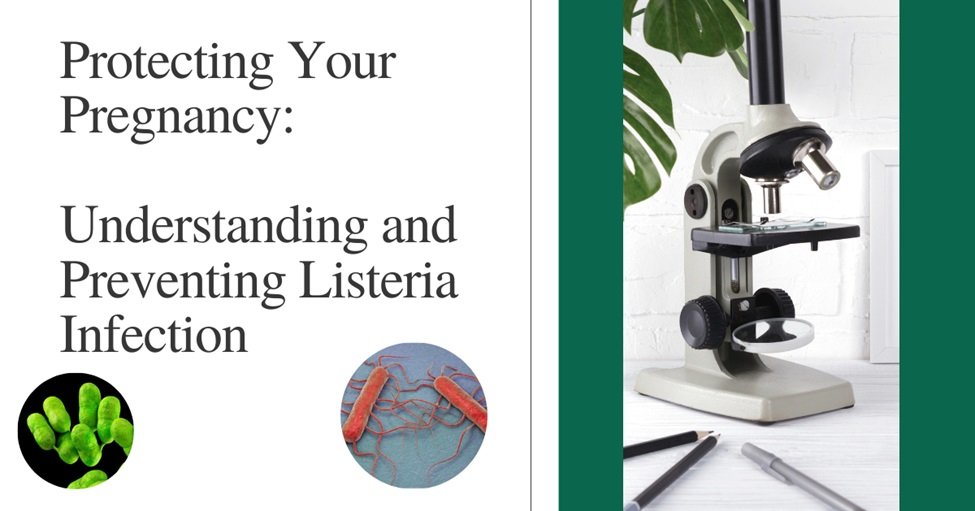Protecting Your Pregnancy: Understanding and Preventing Listeria Infection

Congratulations on your pregnancy! While this is an exciting time, it’s important to be aware of potential risks to ensure the health and safety of both you and your baby.
One such risk is Listeria infection, a bacterial illness that can have serious consequences, especially during pregnancy.
[adinserter block=”1″]
What is Listeria and Why is it a Concern During Pregnancy?
Listeria is a type of bacteria commonly found in soil, water, and some foods. While healthy individuals may only experience mild symptoms if infected, pregnant women, newborns, and those with weakened immune systems are at higher risk for severe complications.

Symptoms of Listeria Infection:
It’s crucial to recognize the symptoms of Listeria infection, which can appear up to two months after exposure and may resemble flu-like symptoms, such as:
• Fever
• Muscle aches
• Headaches
• Nausea and vomiting
• Diarrhea
If you experience any of these symptoms during pregnancy, seek immediate medical advice. Early detection and treatment with antibiotics can greatly improve outcomes for both you and your baby.
[adinserter block=”1″]
Preventing Listeria Infection During Pregnancy:
The good news is that there are steps you can take to reduce your risk of Listeria infection:
1. Practice food safety: Thoroughly wash all fruits and vegetables, especially before eating them raw.
2. Cook foods thoroughly: Use a food thermometer to ensure that all foods are cooked to the appropriate internal temperature.
3. Avoid certain high-risk foods: These include unpasteurized milk, soft cheeses, deli meats, hot dogs (unless reheated to 160°F), smoked seafood, pre-made salads, and unpasteurized juices.
4. Maintain proper hygiene: Regularly sanitize surfaces and utensils used for food preparation, especially after handling raw meats.
5. Store leftovers correctly: Promptly refrigerate or freeze leftovers and ensure they are reheated thoroughly before consumption.
Remember: If you have any concerns or questions about Listeria infection or food safety during pregnancy, don’t hesitate to consult your healthcare provider. By following these preventative measures and staying informed, you can significantly lower your risk of Listeria infection and promote a healthy pregnancy for both you and your baby.
expectant mothers – food safety – healthy pregnancy – listeria – pregnancy – prevention – symptoms
We invite you to visit more articles about Health
